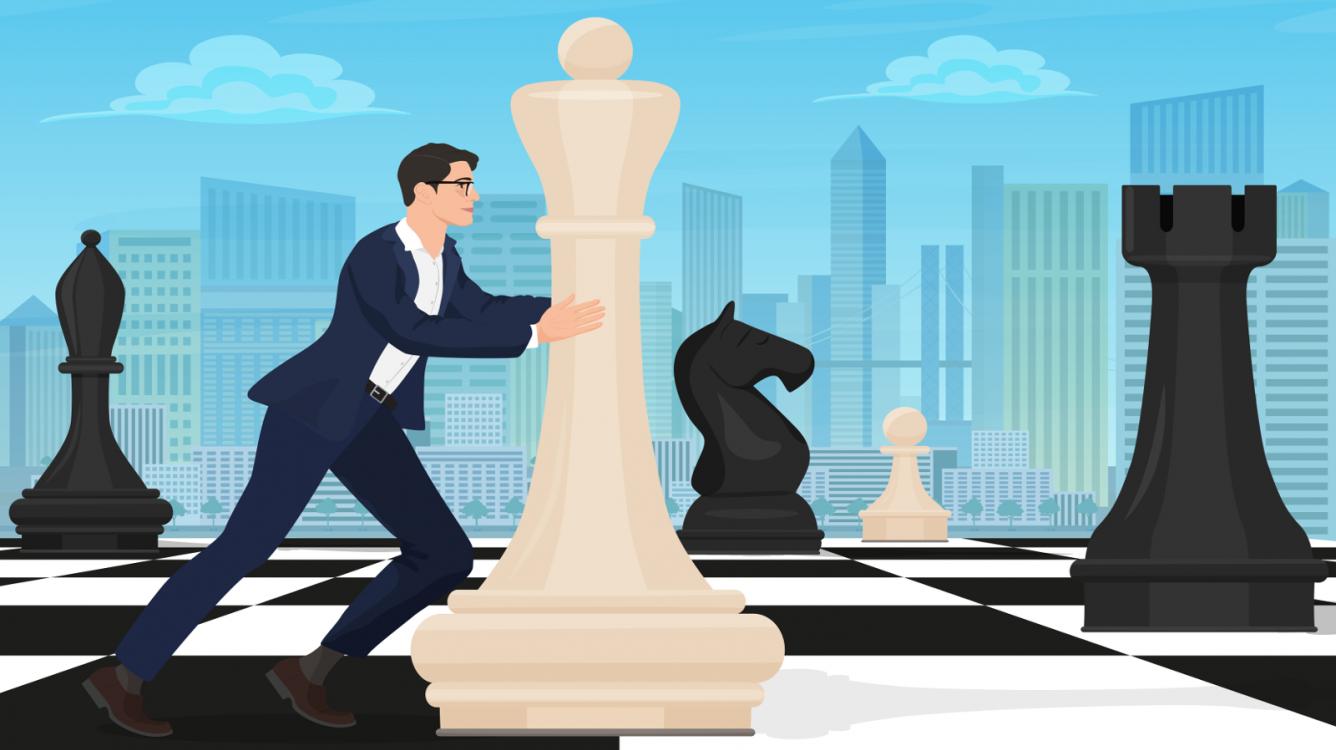
How To Learn From Your Defeats Like Karpov
Anatoly Karpov's book of selected games is one of my all-time favorites. It was a part of the famous Soviet "Black Series" about the world's best chess players. Being one of my first chess books, it seriously affected my chess style for years to come.
I enjoyed everything about this book: the layout, the pictures, and even the strange mustardy smell which I still remember. Currently, it is available on Amazon for $180! If it is a bit too pricey for you, then you can buy another book by Karpov there. For a whopping $2.47, you can be the proud owner of "Learn From Your Defeats."
Let me tell you right away: I don't recommend this book. Edward Winter calls it "bad without being excusable," and says its the publisher's "most unfortunate production."

One wonders what the publisher learned from this ...
While the concept of the book is interesting (Karpov first shows the games that he lost and then the games that he won against very same opponents), the delivery was truly awful. The games are very lightly annotated or not annotated at all. Even worse, there is no connection between the games except that they were played by the same players. So, if I lost a game to player X in the King's Indian Defense and then beat the same player in the Ruy Lopez, how have I learned from my first defeat? The opening, the pawn structure, and the whole strategic picture was different in both games!
If you are a disappointed owner of the book, I'm going to try to make it up to you and show you how Karpov really did learn from his defeats. The first game shows a tough lesson which then World Champion Karpov learned from the recently departed Viktor Korchnoi:
If you quickly click through the game, you might think that Karpov lost the game due to the blunder on move 27 which allowed the skewer 28.Ba6! Of course, Karpov didn't miss this move. When he played 27...Rb7, his position was already lost.
So, what went wrong, and who is the real culprit? If you analyze the game, you can see that even before Black lost the exchange, he was really suffering due to the lack of space.

In chess, a lack of space can be fatal.
White's monstrous center really strangled Black's pieces. I think that 13...d5 was a strategic mistake that lead to disastrous consequences. If Black just kept playing without locking the center and effectively killing his own bishop on g7, his position would have been not that bad. For example:
Of course, White is still better even after 13...Qd7, he just shouldn't get greedy and go after the a7-pawn. Nevertheless, these variations show that Black should keep his pieces relatively active and ready to pounce once White gives him a good opportunity.
You can bet that any loss in a world championship match is a very painful lesson, so Karpov learned from his defeat! Fourteen years later, he created the following masterpiece which was called "a win in Alekhine's style!" I was watching the game live, and it was an unforgettable experience!
As you can see, Karpov doesn't miss the opportunity to create the same formidable center as in his game versus Korchnoi. But what should he do next?

Korchnoi's plan of playing on the c-file is not very promising in this position as Black already has his rooks doubled there. Try to guess Karpov's plan here!
You have good positional skills if you correctly guessed that Karpov is going to attack on the kingside. Now check your tactical skills and figure out how Karpov finished this beautiful game!
A couple of weeks ago, we discussed the importance of learning chess patterns. This is a good example of a powerful strategic pattern. Two completely different openings led to a similar strategic situation where Black's pieces were severely restricted by White's powerful center. The more patterns like this that you have in your chess toolbox, the easier it is for you to play your games!
Please don't miss another important point: If such a legendary player as Karpov learns from his defeats, so should you! One good trick learned from a game you lost can bring you dozens of points in your future games. Meanwhile, in our future articles, we'll continue talking about useful chess patterns, so stay tuned!






